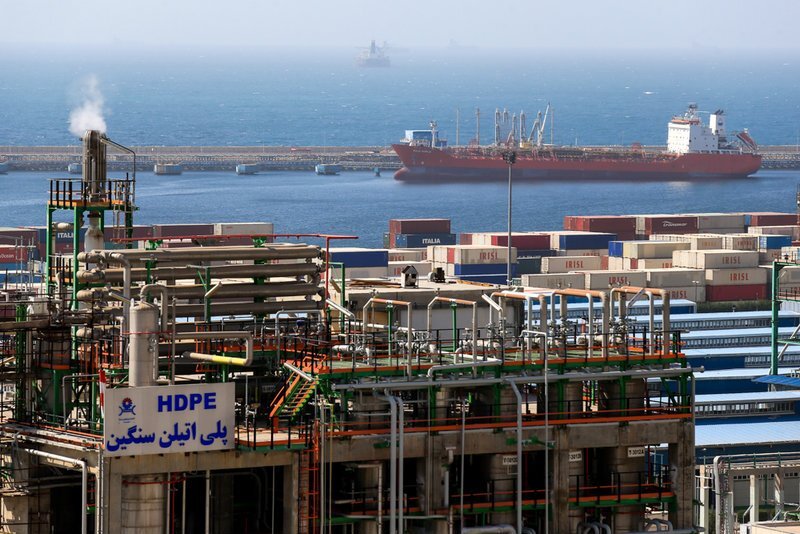Petrochemical export rises 13% in 7 months on year

TEHRAN- Iran’s petrochemical export has risen 13 percent in the first seven months of the current Iranian calendar year (March 21-October 22), as compared to the same period of time in the past year, the secretary-general of Iran’s Petrochemical Industry Employers Association announced.
Ahmad Mahdavi Abhari put the amount of petrochemical export at 17.5 million tons in the seven-month period of this year, and at 15.5 million tons in the seven-month period of the previous year.
He also announced that the country’s petrochemical production rose seven percent in the first seven months of the present year.
The official put the seven-month petrochemical output at 41.55 million tons, while the figure was 38.608 million tons in the same period of time in the past year.
Abhari predicted that the value of Iran’s petrochemical export will reach $17 billion in the current Iranian year.
He said that petrochemicals accounted for $9.605 billion of the country’s $24.251 billion worth of non-oil export in the past year.
In late August, the managing director of the National Petrochemical Company (NPC) announced that Iran’s annual export of petrochemicals is expected to reach $18 billion in the current Iranian calendar year (ends on March 20, 2023).
Morteza Shahmirzaei said that currently, the petrochemical sector has the highest added value in the oil industry chain.
The official further put the country’s annual petrochemical production capacity at 90 million tons.
“Some products were not considered in the previous periods and we were faced with their import at the cost of five billion dollars”, he said, adding, “The products of the propylene chain are of special importance and include 70 percent of the total petrochemical imports. To reduce the dependency, the petrochemical company has focused on the development of value chain projects.”
He went on to say that supply of propylene is important for the supply of feed for this chain, and currently, the production capacity of propylene is one million tons per year, and the country's need is more than this amount.
The official explained that 95 percent of propylene produced in the country is used for the production of polypropylene and five percent is used in other sectors. On a global scale last year, 68 percent was in polypropylene and 32 percent in other sectors, so Iran's consumption pattern is different from the world’s pattern.
In the petrochemical industry’s 10-year strategic outlook plan, 35 projects with a nominal capacity of 13 million tons per year for the production of propylene are predicted, which will increase the production capacity of propylene to 14 million tons, of which 11 million tons will be consumed in polypropylene and three million tons in other sectors, Shahmirzaei announced.
Back in mid-May, the official had said that Iran exported petrochemical products valued at more than $15 billion in the past Iranian calendar year 1400 (ended on March 20).
He said that of the mentioned $15 billion petchem revenues, over $12.5 billion was injected into the Forex Management Integrated System, locally known as NIMA.
The petrochemical industry plays a crucial role in Iran’s non-oil economy, as petrochemical export is the second-largest source of revenue for the country after crude oil. Petrochemical exports already constitute nearly 33 percent of the country’s non-oil exports.
The NPC’s managing director further stressed that the petrochemical industry is a value and job-creating industry, which has no risk.
The official said that 69 production units (including three service units that provide services such as water, electricity, and steam for production units) are now active in the petrochemical industry of Iran, which plays a significant role in bringing foreign currency to the country.
Elsewhere in his remarks, Shahmirzaei stressed that domestic production should be realized in all sectors of the petrochemical industry.
A small part is still remaining so that this target will be achieved, he added.
Petrochemical Research and Technology Company and Research Institute of Petroleum Industry in addition to the other related institutes and centers are taking all efforts in this due, the official added.
He mentioned the West Eslam-Abad petrochemical project as one of the projects that all of its parts will be domestically produced.
“We should apply five technical knowledge for this project, which require some special preciseness and effort”, Shahmirzaei noted.
MA/MA
Leave a Comment